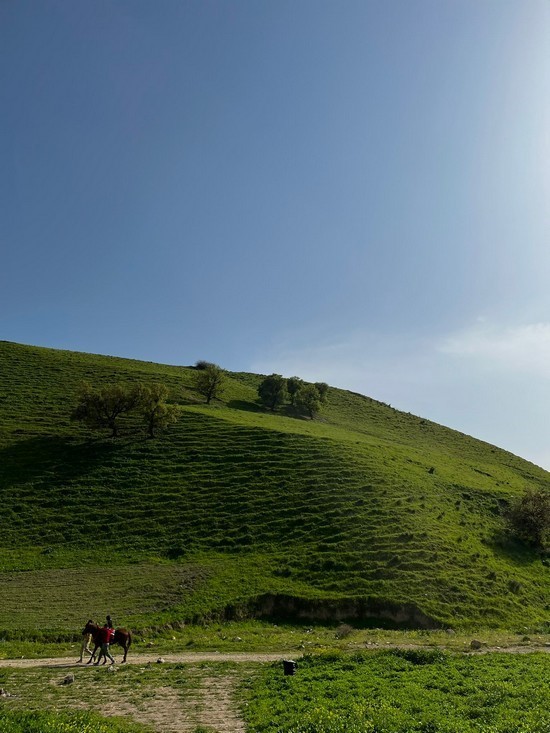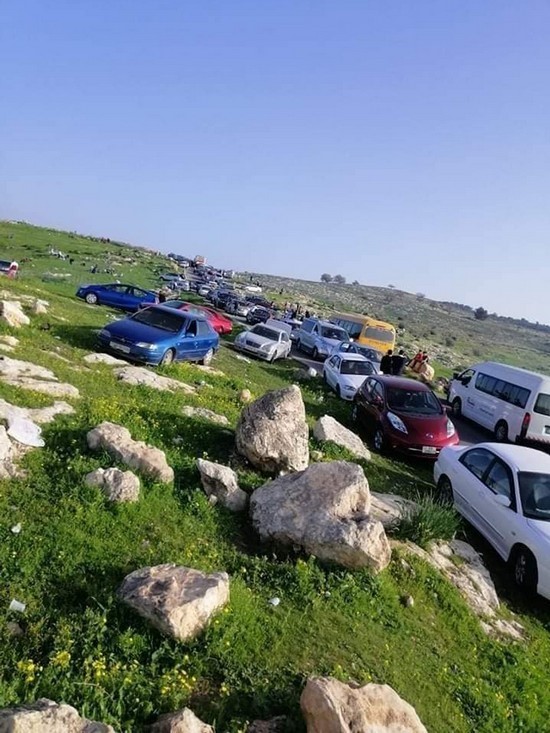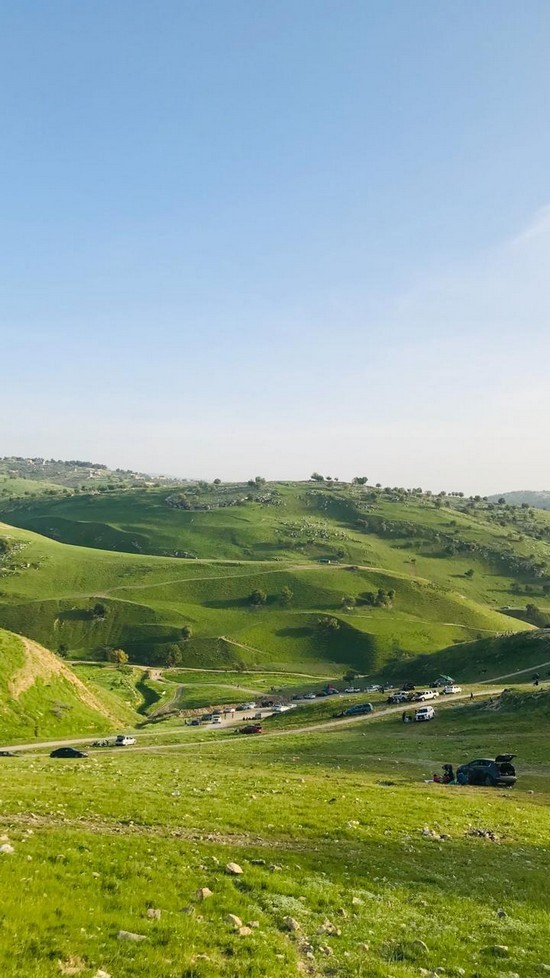After a harsh, long winter, during which almost every weekend the weather
was accompanied by a depression, spring is finally here.
Last Friday, a
huge number of people headed to the northern part of the country to enjoy
Jordan’s beautiful nature. The traffic of that day was trending amongst social
media users, but the next day one shocking post was almost neglected.
اضافة اعلان
Mohammad Rababa
Abu Nayef, a farmer in
Umm Al-Namel, Al-Kourah District in
Irbid Governorate,
wrote on a post on his Facebook account that he lost around 40 acres of wheat after the spike in visits, wondering whether there is “a possibility of thinking of a
solution that keeps the internal tourism active and preserve our agricultural
crops”.

Sadly tourists
could not differentiate between wild grass and planted wheat, and drove over
the crops, sat on them, and some even barbequed on them, doing great damage to
the farmers and owners of these lands.
The
farmers took
it upon themselves to educate people on social media, explaining that plowed
land appears lined, which means it is planted and waiting to be harvested, and
asking that people not sit on plots of land that look plowed.
Jordan food security
facts
A UN policy brief titled “Toward the implementation of the
food security
strategy in Jordan in 2021”, published by Al Mamlaka, showed that food security,
especially after the pandemic, is now an alarming issue for Jordan, where 53
percent of the population is now food insecure, and that 3 percent of families
are suffering from food insecurity.
The brief also
mentioned that Jordan imports $4 billion worth of food and agricultural
produce, which is more than 90 percent of the country’s food needs.
These shocking
numbers and Abu Nayef’s post where highly talked about and shared amongst
environment activists on social media platforms.
... Food security, especially after the pandemic, is now an alarming issue for Jordan, where 53 percent of the population is now food insecure, and that 3 percent of families are suffering from food insecurity.
Many farmers
mentioned that they face this issue yearly, and that although they welcome
visitors of all nationalities and encourage domestic tourism, they would prefer
that it did not affect their source of livelihood.
Ministry of Environment spokesperson Ahmad Obeidat told
Jordan News that a partnership
project is being discussed by the ministries of environment and tourism
ministries to address this issue.
 Waste left behind
Waste left behind
Another big issue was the waste left behind by the visitors and hikers
last Friday at Um el Namel and many other tourist sites, like on either side of
Al-Urdon Street, where waste and coal, some still smoldering, was strewn all
over
Obeidat said that
serious work needs to be done to raise awareness and educate the
Jordanian tourist, and raised the issue of dumpsters at tourist sites, often sorely
missing.
How to leave no waste
in nature
A good way to start is by repackaging food in containers before leaving.
If you would like
to cook fresh food during a picnic, try to remove non-edible parts of the food
at home, before packaging it. If not, pack the inedible leftovers and make sure
you throw them in dumpsters upon leaving.
Come prepared with
reusable cutlery, water bottles and cloth napkins, and always keep a trash bag
near everyone to make it an easier task.

If you wish to
barbecue, use existing fire pits if you are visiting an established campsite or
if there none is available, try to build small fires and burn all the wood to
ash before leaving.
Sprinkle well with
water to make sure the fire does not rekindle, after which try to collect the
cold ash in a non-flammable trash bag.
You can take this
bag with you if there is no dumpster around, and you should always keep a bag
in the car for the ride snacks.
So let us discover our
beautiful country, but let us also keep it clean and safe. Above all, let us
respect the hard work of the farmers who feed us.
Read more Around Jordan
Jordan News



